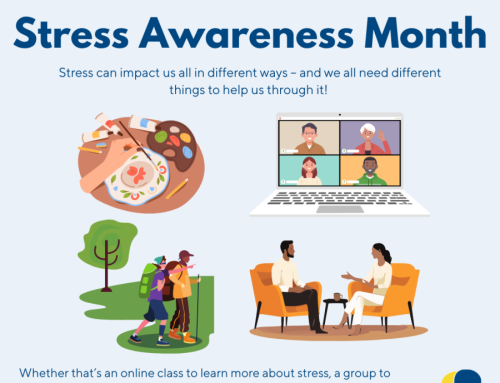This blog is written by: Marion Holloway (she/her) who has hypermobile Ehlers-Danlos Syndrome and autism; and Ruth Armitage (they/them) who has hypermobile spectrum disorder and dyspraxia. Marion and Ruth both work in the LMWS Inclusion Team at Touchstone.
What is hypermobile spectrum disorder?
A hypermobile joint extends beyond the typical range of movement. In some people this is not a problem, in others it causes problematic symptoms such as pain, fatigue and frequent injuries. When this is due to joint shape, loose ligaments, or poor muscle tone, this is known as hypermobile spectrum disorder. Hypermobility is also common in people with heritable connective tissue disorders such as Ehlers Danlos Syndromes (EDS), Marfan syndrome and others.
What are the Ehlers Danlos Syndromes?
There are 13 types of Ehlers-Danlos Syndromes, but some are very rare and some like hEDS (Hypermobile EDS) are more common. In hEDS, the body doesn’t produce connective tissue correctly. Connective tissues are used throughout the body to connect and support every structure in the body. This means that people with hEDS experience hypermobility because the connective tissues in their muscles and joints are overly loose. They can also experience symptoms from weak connective tissues in other parts of the body too (e.g., heart, nerves).
Co-occurring Conditions
EDS and HSD often co-occur with other conditions, including chronic health conditions (such as Postural Orthostatic Tachycardia Syndrome, Mast Cell Activation Syndrome, structural heart problems, poor proprioception, prolapses and hernias), neurodiversity (e.g., dyspraxia, autism, and ADHD), and mental health problems.
How do your disabilities impact you at work?
Marion:
Pain and fatigue can make it difficult to concentrate. I find it difficult to get ready for work, travel to work, and move around safely in the office. I often feel like my additional needs make me an awkward employee and having to constantly advocate for myself feeds into personal anxieties about not being “good enough” which can affect my mental health.
I also get asked lots of questions about my disabilities and I try to educate people, but HEDS is a complex condition. I use up a lot of energy explaining things, so I think people should stop and ask themselves, “who benefits from me asking this question?”.
Ruth:
For me, pain and fatigue changes in frequency and severity over time, and different reasonable adjustments may be needed depending on my symptoms. I am accustomed to being in some pain every day. I sometimes hold myself to high expectations and struggle to acknowledge that I’m dealing with pain when other people may not be.
When I try to self-manage my conditions, other people who don’t know me well or understand my “normal” sometimes question me or distract me. For example, when doing eye exercises in an office, a colleague I didn’t know well asked me what I was doing, which made me feel self-conscious about having a body that doesn’t function how people expect, particularly because HSD is an invisible disability.
As we’ve said above HSD co-occurs with dyspraxia and I can’t talk about HSD without talking about dyspraxia because they’re so linked. To find out more about dyspraxia, you can watch this video https://youtu.be/TmeTaT7yTu8.
What reasonable adjustments can be made at work?
Marion:
Flexibility is the most important factor for me because if I can pace myself, I can manage my pain and fatigue symptoms. Pacing is a technique where you try to use a steady level of energy throughout the day, instead of overexerting and then crashing. I can do this if I have the option to work from home and take breaks when I need them.
I also get support through Access to Work, including ergonomic equipment to support my joints while I work. This reduces the number of injuries I experience. I also use my wheelchair at work to help with pacing because I can’t stand or walk for very long.
Ruth:
To help with my hypermobility I have a fully adjustable chair to support my posture and to reduce and prevent pain. Also, using a computer at work reduced my need to write. This makes a big difference because writing by hand for a long time causes a lot of pain. For work outside of the office, such as events and external meetings, I need managers and colleagues to make sure there are supportive seats available and only short distances to walk.
The most important things to support me with my dyspraxia are to be patient and not rush me, while also seeing my strengths. Sometimes I need extra time to complete a task, understand a concept, or to explain my opinion.
General advice for supporting colleagues with hEDS/HSD:
- Listen to people!
- Take on feedback without being defensive
- Don’t ask personal questions
- Don’t touch people or their mobility equipment without their explicit consent
- Information about colleagues taking sick leave should be shared on a need-to-know basis
- Keep pathways clear from obstructions
- Maintain access lifts
- Don’t use disabled toilets as a storeroom
- Don’t judge people who use a disabled toilet or parking space – not all disabilities are immediately obvious
Suggestions for reasonable adjustments
Do they need:
- a different desk setup?
- a desk closer to the toilets or kitchens?
- a place to rest occasionally?
- space to store mobility equipment, medications or orthotics on site?
- step-free access?
- a Personal Emergency Evacuation Plan (PEEP)?
- a closer parking space?
- flexible hours?
- adjustments to avoid allergies to things they may encounter in a workplace?
- adjustments to manage sensory sensitivities?
- adjustments to the temperature of the workplace?
Useful Resources
The HMSA | The Hypermobility Syndromes Association
The Ehlers-Danlos Support UK – Support for people touched by the Ehlers-Danlos syndromes
Reasonable adjustments at work | Disability charity Scope UK





